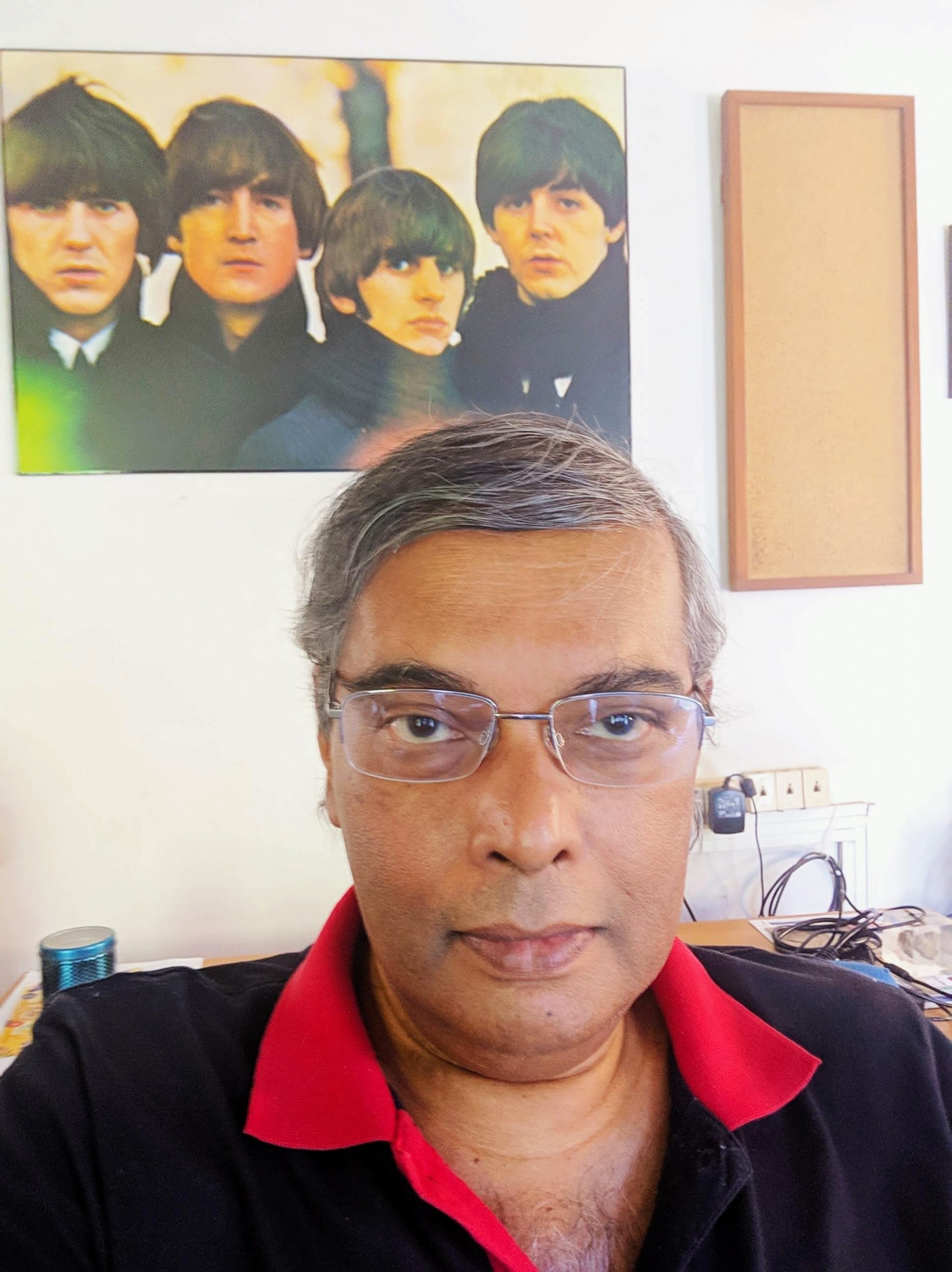As the UK Asian Film Festival kicks off this week, we chatted to The Beatles and India director Ajoy Bose about creating this revealing film.
The Beatles and India features as the closing film the UK Asian Film Festival, being hosted at the Belgrade this year as part of our City of Culture programme. We recently chatted to director Ajoy Bose about his experience creating this retrospective of The Beatles’ long history with India.
The film is inspired by my book Across the Universe: The Beatles in India, published a few years ago to celebrate the 50th anniversary of the band’s trip to Rishikesh. The story traces the most famous Western rock band ‘s fascinating journey, led by George Harrison after he (almost accidentally) discovers the sitar to a faraway land in the East, to imbibe its music, culture and spirituality.
This cultural odyssey happens over a three-year period while The Beatles are seeking to reinvent themselves from pop stars to multi-faceted musical artists, experimenting with psychedelic drugs and technical innovations to their music. The film explains the crucial role played by India in the evolution of the band, as well as their pioneering role guided by the two Indian gurus Pandit Ravi Shankar and Maharishi Mahesh Yogi in bridging two vastly different cultures.
The story finds its climax when The Beatles reach the Maharishi’s remote Himalayan ashram, far away from their busy celebrity lives, in search of a magical mantra from the guru to get spiritual bliss. But while the idyllic sojourn inspires an unprecedented burst of creative song writing by the band, it didn’t last long. First Ringo and then Paul go back home for personal and business commitments, and finally even John and George leave amidst much drama after an ugly fracas with the Maharishi.
Yet, as the film shows in the end, the love affair between The Beatles and India endures even though the band would break up just a few years later. George continues to consider India as his spiritual home, with his relationship to Ravi Shankar deepening over the years. And even the others come to appreciate the influence of India on them as musicians and individuals.
At the same time, the film records the huge impact of The Beatles on a variety of rock bands and musicians in India and a growing fan club across generations.
While writing my book, I realized the enormous historical importance of the cultural bonding between The Beatles and India. I knew it had the potential to be a great film. But this particular film project is the brainchild of producer Reynold D’Silva, a London based British-Indian musical entrepreneur. He first thought of a Beatles and India documentary more than three decades ago, while his music company was releasing tracks with Handmade Films, then owned by George Harrison. Some years ago, when the ashram at Rishikesh was restored and opened to the public, the idea acquired some urgency.
After my book came out in India, Reynold organized a meeting between his close aide Pete Compton, later co-director of the film. We met at the White Album conference in Monmouth University where I was giving a lecture on my book. Soon after, the producer flew down to Mumbai to meet me and we found we were on the same page on the film project. In four months’ time, just about two years ago, we had collected a research team and a camera team to start shooting the film.
Creating the film was an exciting adventure for me but a demanding task. I had the advantage of already being in touch with a vast number of people across India and some abroad. They told me the story of The Beatles and India while I was researching the book, but getting them to speak on film was not easy.
Reynold and Pete also had their contacts, and between the three of us we put together an extensive list of interviewees. We found people who had encountered members of the band on their trips to India, experts who gave us insights to the relationship between The Beatles and India, and a range of Indian musicians of the Beatles generation. We also found contemporary artists who spoke of the impact The Beatles’ music had on them.
The real challenge, though, was to get archival material both footage and images from more than half a century ago. Guided by co-director Pete Compton, the research team have done a fabulous job.
Finally, I am happy the film has been given a prominent perch in the UK Asian Film Festival. I can think of no better platform to launch a film that chronicles the saga of a British band reaching out to India that embraces it, in turn leaving a cultural legacy that still resonates today.
A socially distanced screening of The Beatles and India will take place in B2 on Sat 29 May at 7:30pm. Tickets are available here.
